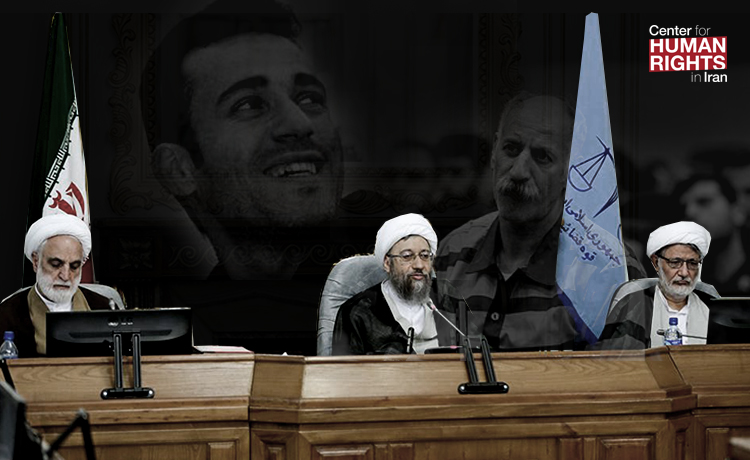Iran: Stop Imminent Execution of Kurdish Prisoner, Investigate Evidence of Torture and Denial of Due Process
 Fear Grows After Bus Driver Was Executed in Iran Despite Similar Concerns
Fear Grows After Bus Driver Was Executed in Iran Despite Similar Concerns
June 20, 2018—The Iranian judiciary should immediately annul the death sentence issued against Kurdish prisoner Ramin Hossein Panahi and investigate credible concerns of torture and denial of due process, the Center for Human Rights in Iran (CHRI) said in a statement today.
The judiciary should also investigate the case of the recently executed bus driver Mohammad Salas, due to serious questions regarding the denial of due process in his case as well.
CHRI calls on the Iranian judiciary to cease politically motivated executions, stop violating international standards of due process, and guarantee the rights of detainees to the counsel of their choice including a full and fair defense and trial.
“Iran just executed a bus driver who was clearly mistreated in custody and it may soon take the life of a young man who was also denied due process,” said Hadi Ghaemi, executive director of the Center for Human Rights in Iran (CHRI).
“Instead of using executions to show an iron fist to activists and critics of the state, the judiciary should defend the rule of law and investigate rampant rights violations and denials of due process in the Iranian legal system,” Ghaemi said.
Kurdish prisoner Ramin Hossein Panahi, 24, was sentenced to death by Branch 1 of the Revolutionary Court in Sanandaj, the capital of Kurdistan Province, for his alleged membership in the outlawed Kurdish nationalist group Komala, and for drawing a weapon against agents of the Islamic Revolutionary Guard Corps (IRGC).
His execution was set for May 3 but was postponed after international outcry by the UN and rights organizations. Panahi’s request for a case review was rejected by Iran’s Supreme Court, leaving him in danger of imminent execution.
The UN’s special rapporteur on extrajudicial, summary or arbitrary executions, Agnes Callamard, has cited concerns that Panahi was denied access to a lawyer, a fair trial, and that he was mistreated and tortured in detention.
Grave concerns were also cited in the case of Salas, a Sufi bus driver accused of running over and killing three policemen in Tehran, who was hanged on June 18, 2018, and buried by the authorities without his family’s consent.
In the weeks before his execution, Salas accused his interrogators of forcing him to confess under torture and a video of him in custody was broadcast on state TV showing him with visible bodily injuries.
Hanged at dawn in Rajaee Shahr Prison in Karaj, west of Tehran, the authorities buried Salas, 51, in Darolsalam Cemetery in his hometown of Boroujerd, Lorestan Province, without his family’s permission.
“They denied us our last visit… They executed our father… Then they called us and said he had been buried somewhere… My father was tortured… His head was covered with stitches… When he was brought to court they had put makeup on him like actors to hide the stitches,” said Salas’ son, Alireza Azami, on June 18.
Salas was a member of Iran’s Sufi Gonabadi Order, a persecuted faith in Iran. He was accused of running over the policemen during violent protests in Tehran by Gonabadi Dervishes in which at least one Sufi protester was killed in custody and dozens were hospitalized.
Iran-based activists, lawyers and journalists have raised questions about the handling of the case on social media. They note the judiciary’s rush to execute Salas despite unanswered questions surrounding his case, as well as credible indications that he was abused in custody.
The judiciary’s decision to carry out the death sentence against Salas came just three months after the Tehran police chief stated the bus driver would be hanged even though Salas had not yet been tried.
Salas’ execution is another case in a long list of cases that reflect the close cooperation between the Iranian judiciary–which operates under the authority of Supreme Leader Ali Khamenei–and the country’s security forces, in the prosecution of critics of the state.
The UN should call on the Iranian judiciary to cease the application of the death penalty in Iran in ways that violate international standards for capital punishment.
“Iran’s judiciary is acting like the state’s mafia,” said Ghaemi. “The rule of law is ignored while judicial and security officials violate citizens’ rights with impunity.”






